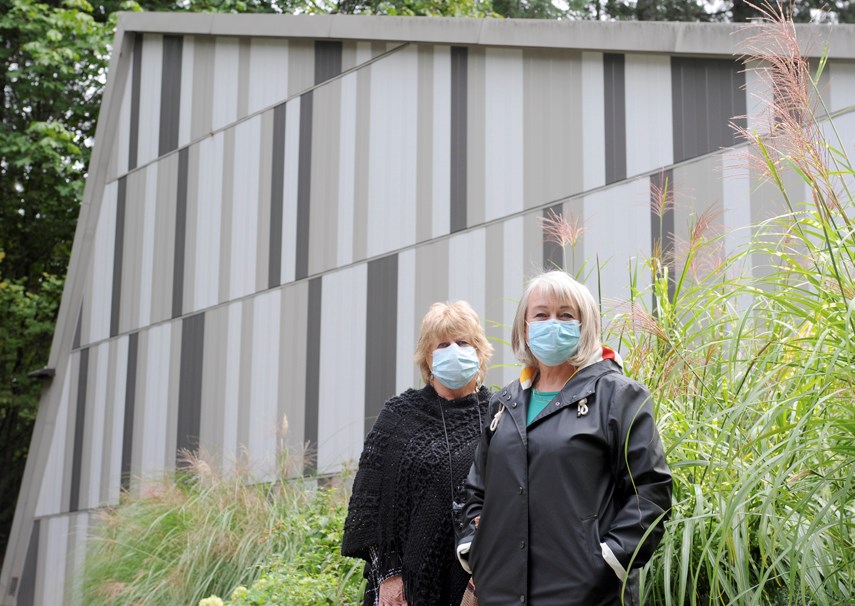This story has been amended since first posting to reflect that only special events of over 50 people held in the pool would require vaccine passports.
Before the pandemic, Denise Kellahan regularly attended an aquafit program at the Ron Andrews Recreation Centre in North Vancouver.
But when recreation centres opened up again last fall, Kellahan didn’t rush to join the classes again, on the advice of her doctor.
As someone who suffers from asthma, which could complicate any COVID infection, she felt her risk was too great.
When Kellahan heard that vaccine passports would be coming in for fitness activities this fall, “I was so excited,” she said. For her, it meant the chance to resume an activity she loves, knowing she’d have some protection.
Kellahan said she recently stopped in at the recreation centre to sign up for classes.
But she was unhappily surprised to discover the vaccine passport requirement doesn’t extend to pools, saunas, pool change rooms and related facilities.
Kellahan says she hasn’t been back since. “I don’t know if the person next to me is vaccinated or not,” she said.
“Many of the people who go to these aquafit classes have compromised immune systems already. We’re a demographic generally of an older age.”
Kellahan isn’t alone.
Linda Acosta is another North Vancouver aquafit attendee who was surprised to find pools wouldn’t be requiring proof of vaccination.
“Many of us are seniors,” she said.
While people in the aquafit classes are told to keep six feet apart, lane swimming is often happening nearby and is very, very busy, she said.
There are also no restrictions on using saunas or steam rooms, she added and change rooms and showers are often crowded.
Seeing a notice in September that two people who visited the West Vancouver Aquatic Centre had later tested positive for COVID didn’t do much to allay concerns, they said.
Both women say they’ve voiced concerns to the local recreation department, but have been told municipalities are just following guidance from the provincial health office.
Kellahan said she’s also written a letter to Dr. Bonnie Henry, the province’s medical health officer, but has received no response.
Both the North Vancouver Recreation Commission and the District of West Vancouver provided statements confirming they are following public health orders, which do not require proof of vaccination for pool-based activities, unless those are "special events" of over 50 people.
“We also have been in touch with the local medical health officer to review and confirm our protocols for the vaccination checks and they confirmed that proof of vaccination is not required for people using aquatic facilities except for special events or adult sports hosted in these venues,” said Anne Rodgers, spokesperson for the North Vancouver Recreation Commission.
Recreation staff in both municipalities have fielded questions from the public on the topic.
The provincial office has told them that pools are considered a “low-risk environment", and only activities requiring checking of vaccine passports would be special events over 50 people.
Both Kellahan and Acosta also sent questions to the office of their MLA Susie Chant.
They received emails back saying Chant is looking into the issue.
The provincial government responded to a question about why pools are exempted from the order, saying pools and saunas are considered low risk for transmission.
One examination of scientific studies in October 2020 indicated mixed messages on how environments with high humidity or higher temperatures might impact COVID-19 transmission.
Generally, however, the studies found high humidity environments and high temperatures tend to decrease the viability of similar-type viruses, suggesting environments like showers and hot tubs are likely to “decrease the risk of virus transmission.”



